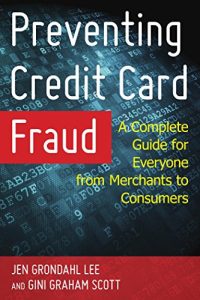Build & Protect Your Wealth Through Apartment Investing With Ronnie Shalev

Being a doctor can be exhausting, especially when you have to work 12 hours and your family relies on you financially doesn’t help in helping to reclaim your life. This episode is dedicated to everyone who wants to reclaim their life and remain financially stable. Today, Ronnie Shalev, a board-certified ER physician turned real estate investor, shares her career shift and how you can build and protect your wealth through apartment investing. Ronnie’s mission to help people with their financial wellness led her to provide some more insights on why investing in apartments is more relevant than other asset classes. Choosing the right market is part of risk mitigation, which Moneeka and Ronnie dive deep into. So if you want to free yourself from the job holding you down, tune in to this episode now! Learn how you can live a life on your terms!
—
Watch the episode here
Listen to the podcast here
Build & Protect Your Wealth Through Apartment Investing With Ronnie Shalev
Real Estate Investing For Women
I am so excited to welcome to the show, Dr. Ronnie Shalev. She is a board-certified emergency physician turned real estate investor. She was a practicing ER doc for sixteen years, but her job sucked the life out of her, leaving her drained, burnt out, and unable to enjoy her family and kids. She wanted to reclaim her life but didn’t know where to start.
She was making great money. Her family was relying on her financially, so she was trapped by the golden handcuffs. That’s when she started exploring the world of real estate investing and found a way to make recurring income without having to be physically at the hospital or with her patients. After some time, the income she earned from her real estate investments gave her the freedom to quit her grueling emergency medicine job and transition to a medical device company. Ronnie’s mission is to share her knowledge with other women who are feeling trapped and want to free themselves from their jobs and live life on their terms. Welcome to the show, Ronnie. It’s so nice to have you here.
Thank you so much for having me.
I know we were talking a little bit about this in the green room, but it’s interesting to me how many doctors have come onto the show talking about either how they are evaluating syndications, or they are actual syndicators. What’s fascinating to me is my mom is also an MD. I know what kind of income you guys make. Especially as an ER doc, that’s some crazy difficult stuff, and they pay you well for that.
It’s fascinating to me to see how syndications and being a syndicator can replace that kind of income. It’s such an inspiration. This is something to think about. We wonder, “Can I replace my income?” Think about the six-figure incomes that are being replaced with real estate. It’s awesome. Thank you so much for coming to share your story on the show.
I’m so excited to share my story. I know that a lot of people can relate to wanting to design their own life.
I’m one of those people, too. That’s what bliss means to me. It is a choice. It is not being a slave to the expectations of the world around us, whether it’s our job, our families, or whatever it is. We want to be able to live life on our own terms. It’s awesome. I read your bio, but why syndication? Why did you take this particular route?
I was not ever planning on being a syndicator. Ever since I was a little girl, I have wanted to be an ER doctor. I wanted to help people. I wanted to help people with their health and their life in their times of need. I remember a shift where I was alone. I was the only doctor in the entire ER. There was no scribe, no mid-level, no physician assistant, nothing. It was around 10:00 PM, and I was treating two stroke patients at the same time. I also had an asthmatic who was having severe trouble breathing. I had someone having a heart attack. The waiting room was full. There wasn’t an empty chair. You could see the pain and frustration on everyone’s faces, the patients and the families.
On top of it, there were several ambulances lined up waiting to get checked in. I looked at the clock to see, “When is my relief coming?” It was eight more hours. The stress was unbearable. I couldn’t breathe. I was responsible for all of these people. The administrators had cut all of the physician hours and assistance hours, leaving only one doctor responsible for everyone who walked into the ER or was already there. I’m faced with this situation. What did I do? I put my head down, and I did it. I took care of everyone at the expense of my own health. I didn’t eat, drink, or pee during that shift.
For eight hours?
Twelve. I came home, and I was so exhausted. I collapsed on the bed. I went to sleep in my scrubs, which is unheard of because you feel disgusting after the hospital. I slept the rest of the day. My husband and my family didn’t understand why I was so tired. They didn’t understand that I’d taken care of over 50 patients that night with extreme stress and liability. It’s hard to fathom. How could they?
I started to think about what else I was supposed to do. I was like, “What else is there? I’m a high-paid hourly worker, and I’m tied to my job. I have to keep it.” I was told by my administrators with no medical education how to practice medicine and how quickly to see the patients. They made sure to tell me that I was dispensable and could be fired if they didn’t like my numbers. I started to think, “Why did I love this job in the first place? Something has to change.” That’s when I started looking at other options and what else was there. I was like, “How can I free myself from this job?” That’s where I found real estate.
It was about that time that a friend told me that he was passively investing in real estate. I didn’t understand what that meant. He was like, “I own a piece of 100 7-Elevens, and I receive a check every quarter. I get passive income.” I’m like, “Passive income? What is that? That’s weird.” For years, I had been working per hour. My time was not passive at all. My money was never passive. I thought to myself, “This sounds weird. This sounds fishy. Is it a pyramid scheme? Is he lying to me? It sounds like it’s too good to be true. Maybe you could lose your money. I don’t know.” I was very paranoid.
I started thinking and remembering what was going on in the hospital and with those administrators. I was so frustrated about trading my health and my well-being for money. I decided, “Why not? Let’s give it a shot. It’s not like real estate goes to zero. It’s almost impossible for that. There are hard assets. There’s land.”
My husband and I decided to dip our toe in and do a small investment first. It worked. We started getting checks every quarter. I said, “This is interesting. Does it work again? Let’s do it again.” We did it again. We started seeing results. That’s where we started investing. We’ve been part of over 26 deals. We’re always looking for new ones. We did a reassessment and said, “I could leave medicine. I can go to something that’s way less stressful with this passive income that we’ve generated.” It took many years.
How many?
It took eight years. That’s the thing. This is not a get-rich-quick scheme or something like that. This is a long-term strategy where you know what the outcome is. It’s predictable. After I was able to do that, I still see all of my physician friends and colleagues as miserable. I’m telling them, “This is what I did.” They’re like, “How did you do it? Did you win the lottery?” I’m like, “I didn’t win the lottery. This is the actual strategy that I did.”
Apartment investing is a long-term strategy where you know what the outcome is. Share on XThey still have fear. They were like, “I don’t have time to learn it. I don’t have time to study it.” I said, “That’s perfect. I’ll do it for you. I’ll do that. You can leverage my expertise. You can leverage my time. You can leverage other people’s money through the banks.” I went and studied how to do it actively myself. My husband and I took a mentorship program and learned how to do it. We started our own company, where we are syndicating apartments specifically and bringing along other professionals.
Do you ever miss the helping people aspect of medicine?
I help people all the time. What I didn’t know when I was looking at being a physician as a career at that time, I thought, “This is how you help people.” Now I have a better perspective that you don’t have to help people with their health. You can help them with their financial wellness. I’m still helping, which is huge. On top of it, I’m also able to still use my medical knowledge. I work at a medical device company. It’s not because I have to work there. It’s because I want to work there. We’re helping thousands of patients every single day. I get to use my medical knowledge. I get to use my investing knowledge. I get to help so many people on a grander scale. I’m still feeling that drive to help people. That’s that feeling.
You don't have to help people with your health. You can help them with their financial wellness. Share on XIt’s so interesting because I don’t have to work either. I’m like you in your situation. I’m, by nature, a coach. My mom was a psychiatrist. She and I are so similar. My heart is to help. I found a very similar thing when I was coaching. I was trading time for money. I gave up on so many other things that were important to me. It’s certainly not comparable to you, but there’s that feeling inside me of wanting to help.
As I’m trying to redesign my life, retire, and have more time for my husband, my family, my nephew, and my parents as they’re aging, I’ve got the financial wherewithal to not have to do anything. My way of helping is by doing this show because this way, my ladies are elevated by my guests and whatever little knowledge I can offer. It’s an opportunity for me to give back so that I have that peace inside of me fulfilled. The biggest things in people’s lives that we need an abundance of are our health, our wealth, and love. It is our relationships. It is the three biggest things, and you’re handling two of them. That’s unbelievable. That’s awesome.
I love that you’re helping so many women and bringing on powerful people to motivate. How does someone know that they can do it without hearing that other people have done it, too?
That’s right. Thank you for sharing your knowledge with my ladies. Talk to me a little bit about why you chose apartments.
We passively invested in a lot of different asset classes. We’ve done self-storage, retail centers, mixed-use buildings, industrial warehouses, and assisted living. There’s a lot that I’ve done, but I like apartments the best because they make sense to me. I feel like housing is a basic need. Everyone needs a place to live. If they’re shopping online on Amazon, they’re at home. They’re not going into the office. They’re working remotely. They’re doing it from their homes.
With the interest rates going up and the supply shortage, people can’t afford a house. They can’t afford a down payment. There’s a whole population of renters that have to be renters. There’s also a whole population of people that want to be renters. There are the Millennials that don’t want to be tied down. They don’t want to be having these roof leaks, plumbing, and all kinds of deferred maintenance on their home. They don’t want that. There are seniors. These are people that are trying to buckle down and live on fixed incomes. They don’t want surprise expenses with their homes.
That’s a good point.
They’re downsizing. They move out, so they become renters. There are all these people going to rent, and there are not enough places. That’s why rents are going up crazy all over the place. I’m going into apartments, but I’m not just going into any apartment. We focus on recession-resistant assets. We’re looking at Class B and Class C properties. The reason I’m looking at that is that what happens when you’re in a recession? It is what people might say we’re in. You’re living in a Class A building, which is a high-rise. There’s a bellman or a doorman. It has all of it.
Maybe you have a pay cut, or you get furloughed, or you’re let go. Why do they move? They move into Class B. It is the same thing. The people living in Class B move to Class C. I’m right in that demographic that whether we’re in an economic downturn or not, people are looking to live there. I’m taking those communities, and I’m making them better. I’m doing value add. We’re putting in dog parks and solar panels. We’re including internet in our packages. We’re doing a lot of nice things for the residents, making it a community where it’s a nice place to live. What we’re doing is we’re adding value. We’re making the residents a great place to live, and then the investors make money. It’s a win-win.
Tell me about how you pick your markets. I know you’re doing Class B and C, but how do you pick the markets you want to go into?
I’m focusing on the Sunbelt states because I want people to be moving to where my apartments are. I’m looking for landlord-friendly states. I want to be able to evict if I need to. I don’t want a tenant that has lived there for two years and doesn’t pay rent. I’m looking for landlord-friendly states. I’m looking for growing markets. These are sub-markets where people are moving into. Why are they moving? There are jobs. I’m looking for where there’s job growth.
I don’t look for only one employer or one type of employer. The last thing you want is to have this robust factory, and then the factory closes, and everybody loses their job and moves out of your apartment. I’m looking for markets where there are multiple diverse employers in energy, entertainment, device, biotech, or whatever it is. There’s a lot of variety. If one goes out of business, they’re not all going to go out of business.
You can’t completely reduce risk, but you can start thinking and pre-planning if you have a safety plan. I’m looking for recession-resistant assets. I’m looking for places where you can evict tenants that aren’t paying. The goal is to bring income. We want to make sure that people are moving there. We want to make sure that there are different types of employers. There’s a lot of thought into the market selection.

Apartment Investing: You can’t completely reduce risk, but you can start thinking and pre-planning.
In EXTRA, we’re going to be talking about how to mitigate risk. My belief, and correct me if I’m wrong, is part of the mitigation of risk is how you choose a market. Is that true?
Absolutely.
We’ll do a deeper dive on that, so we get a little bit more conversation around that in EXTRA. I’m super excited about that. You talked about passive investors versus active investors. Give me your perspective on it because, as a doctor, it’s going to look very different than it does for the rest of us. Go ahead and define for me what you were looking for as far as a passive investor versus an active investor.
Personally, I love passive investing. It is the ultimate way to explode your wealth. The biggest reason because of that is because of leverage. You are leveraging other people’s expertise. I’m not going as a passive investor to go and fly into every city, drive around, see what the best areas are, and then do research on which companies are moving there, who’s moving their headquarters, and what’s happening in the city design planning. Someone’s doing that for you. You’re not spending your time doing it.
You’re also leveraging other people’s relationships. You’re not having to forge relationships with brokers and tour properties and show them that you’re serious. You’re also not having to sign on for any loans. When you’re a passive investor, you’re not having to find the financing, the debt, and all that stuff and meet all these bankers and mortgage brokers. You don’t have to do all of that. You also don’t have to be finding the deals and analyzing them. You’re leveraging other people’s expertise. You’re leveraging other people’s time.
You have a life. You’re a busy professional. You have a family. You want extra income, but you don’t want to be tied to a new hobby where you’re like, “I wasn’t planning on being a landlord,” where tenants are calling you about termites and how there’s a leak or a fire. Passive investors don’t have to deal with any of that.
Active investors, on the other hand, are the people that want to do work. They’re the ones that are finding the properties. They’re the ones that are doing the market analysis. They’re like, “Is this a good market? Is this a good property? Does this make financial sense? What is the business plan? Is this a buy-and-hold? Are we holding it for a long period of time and waiting for it to go up, or are we renovating it? Are we raising rents? What are we doing?” You’re the one that creates the plan. You’re in charge of it. You’re also in charge of executing that plan. It is making sure that the contractors are coming, that the property managers are renting out the units, and that there’s marketing to the property.
You’re doing a lot of that stuff, and then at the end, you’re the one that does the exit plan. You either refinance it or sell it. Active people are doing active work. It depends on what you want as a person. How do you want to design your life? That’s what I love about real estate. Anything you do in real estate, you’re going to do well. Is it active? Is it passive? Is it commercial? Is it residential? There are so many things that you can do, and you’re going to do them well. As long as you have the right team and the right education about it, anyone can do it.

Apartment Investing: Anything you do in real estate, you’re going to do well.
It’s available to anybody. That’s what I love about real estate. That’s not true in other parts of the world, but here in the United States, we are so lucky. The government even helps you do it and rewards you for doing it. They want people to own their houses. They want people to feel committed to their communities. They want that, so they encourage us to do that.
It’s interesting because when we look at passive versus active, there’s a whole spectrum of passive versus active. The ultimate passive is investing, for instance, in REITs or syndications. I’d love for you to address that. It is all the way to fully actively being the syndicator doing all of those other things. Personally, I have an active model, but I only 5 five to 10 hours a month. It’s active, but I consider it passive. For me, that’s what I consider passive, but you’re right. It’s not fully passive.
I’m my own acquisition person. I have the exit strategy. I’m calling the tenants for rent raises. I’m doing all of those things. It doesn’t take me a lot of time, so it seems much more passive than a 40-hour-a-week job or a 60-hour-a-week job, which is what I had before. It’s still very passive. It’s more active than what you’re talking about. Could you tell me a little bit about your perspective on REITs versus syndication?
A REIT is very similar to a stock. You are buying shares of a company that is owning and managing properties. You’re not owning the real estate itself. A positive with a REIT is that your money’s not locked into a property. You can buy it. The stock, you can sell it. It’s like the stock market. You’re liquid. You can go in, and you can go out.
What I don’t like about REITs is that you don’t own the real estate. You’re investing in a company. If the company is spread thin or something happens in the company, those shares do go down. It’s not a for sure thing, not that anything is for sure. Real estate is getting the depreciation from the real estate. If you are owning part of a company, you’re not getting the depreciation. In syndication, you are an actual owner of the property. You get a depreciation. You get the tax benefits without having the headaches of home ownership.

Apartment Investing: In syndication, you are an actual owner of the property. You get depreciation, the tax benefits without the headaches of home ownership.
Thank you for that. That was awesome. I love what you’re sharing. I’m so inspired by your story and what you’ve been able to do. Could you tell us how people can get in touch with you?
I have an email account. If someone wants to email me, it’s [email protected]. You can email me. I’m happy to hop on a call and talk to you about what you want, how you want your life to look, how active you want to be, or how passive you want to be. Picture a day when you go to work because you want to go to work, not because you have to go to work. Picture a day when your spouse tells you, “You seem healthier. I love the freedom that we have now in our life.” Picture a day you can travel if you want to travel, relax if you want to relax, or serve others if you want to serve others. That’s what real estate investing can do for you. That’s what it did for me. That’s why I’m so passionate about real estate and helping other people. Email me. I’ll be happy to connect.
I love that. Tell us a little bit about your free gift.
I offer a free masterclass about passive real estate investing, what it is, what are the different asset classes you can invest in, and the difference between active and passive. It is a lot more in-depth than we’re talking about here. We’ll talk about what syndication is and what returns we are looking for. You can find it at Invest.ShalwinProperties.com.
That is perfect. Thank you for that. That will be a great way for people to get started and get to know passive investing a little bit more. Thank you. We are going to be doing EXTRA, which is going to be about how to mitigate risk. We’re going to be doing a little more of a deep dive also on finding markets. We’re going to do that after our three rapid-fire questions. Are you ready for three rapid-fire questions?
I’m ready.
Give us one strategy for getting started investing in real estate.
The best way to start is to find out the different ways that you can start and figure out how you want to start. Do you want to be doing it all? Do you want to start passive and then be active later? Do you want to start active and maybe be passive later? Do you want to do both? The first step is to sit down and think about what you want to do and then do it. That’s my big thing. Taking action is so important.
I agree with you on that. What is one strategy for being successful as a real estate investor?
It’s important to listen to podcasts. This is an easy thing. Try to educate yourself by hearing people talk about stories about how they did it. Once you hear how they did it so many times, you start thinking, “I can do it, too. It doesn’t sound so hard.” Listening to other people’s successes and how they did it is important in being successful yourself because success leaves clues.
Listening to other people's successes and how they did it is very important in being successful yourself because success leaves clues. Share on XIt’s a personal self-brainwashing, isn’t it? It is building that confidence. It all starts in mind.
I believe that strongly.
Tell us one daily practice you do that contributes to your personal success.
We’re going to do mindset. I work on my mindset every single day. Stress is wired into me, whether I’m in the ER or doing real estate. My mind is always thinking. In calming my mind down, one of the big things that I do is meditate. I also practice something called reframing, where if you’re thinking one thing, you release, pause, and start thinking like, “Is this thought serving me? Is this helping me to think this way? How am I going to get where I want to be?” It’s certainly not going to be thinking this way. You got to start thinking the other way. Trying to manipulate how I’m thinking and trying to always reframe is a big thing that has always helped me.
Reframing is such an interesting thing because people are like, “You’re making it up if you’re reframing.” The thing is that you made it up in the first place. Any situation that’s happening could be happening to ten different people, and they would have ten different reactions. The situation is not the problem. It’s a story that we make up about it that creates our response. If you’re going to make up the story anyways, you might as well make up a story that’s more serving to your business, your joy, and your life.
There’s something in our minds that we have something called automatic negative thoughts. That is back in the caveman days when we were trying to protect ourselves. We’re like, “Someone’s coming,” and it could be a tiger or whatever it is. That is a preservation thing. Our mind does that. We have to stop. We don’t have to listen to every single thing our mind tells us. That’s something that is important for people to understand. You need to recognize when you’re starting to spin in a spiral of negative thoughts that might not be true.
True is an interesting word. There are some basic truths like don’t kill people. That’s probably a basic truth. In general, in our lives, truth is very subjective. What you’re perceiving is not necessarily true. I love that. Thank you so much for all that you’ve offered in this portion of the show. This has been wonderful, Ronnie.
Thank you so much for having me. I love talking to you.
We get to talk more in EXTRA. Stay tuned. We’re going to be talking about mitigating risk in syndications and picking markets. I’m super excited about that conversation. If you are subscribed to EXTRA, stay tuned. If you’re not but would like to be, go to RealEstateInvestingForWomenEXTRA.com. For those of you that are leaving Ronnie and me, thank you so much for joining us for this portion of the show. You know how much I love having you here. I look forward to seeing you next episode. Until then, remember, goals without action are just dreams, so get out there, take action, and create the life your heart deeply desires. I’ll see you next episode.
Important Links
- Dr. Ronnie Shalev
- [email protected]
- Invest.ShalwinProperties.com
- RealEstateInvestingForWomenEXTRA.com
About Dr. Ronnie Shalev
 When I was an ER doctor, my high pressure job sucked the life out of me. I was left weary, burned out, and unable to enjoy my family, my kids, and my day-to-day life. Since I made great money, I felt hopelessly stuck in these “golden handcuffs”, and saw no end in sight.
When I was an ER doctor, my high pressure job sucked the life out of me. I was left weary, burned out, and unable to enjoy my family, my kids, and my day-to-day life. Since I made great money, I felt hopelessly stuck in these “golden handcuffs”, and saw no end in sight.
Now I help others create PASSIVE INCOME so that they have the FREEDOM to do what they want with their time and not be held captive by their jobs.
SHALWIN PROPERTIES partners with investors who want access to real estate deals so they can get the benefits of real estate without the headaches of being a landlord.
Whether you want to diversify your assets, earn passive income, hedge against inflation, or maximize the tax benefits that come with real estate investing, Shalwin Properties helps you every step of the way.
——————————————————
To listen to the EXTRA portion of this show go to RealEstateInvestingForWomenExtra.com
Learn how to create a consistent income stream by only working 5 hours a month the Blissful Investor Way.
Grab my FREE guide at http://www.BlissfulInvestor.com
Moneeka Sawyer is often described as one of the most blissful people you will ever meet. She has been investing in Real Estate for over 20 years, so has been through all the different cycles of the market. Still, she has turned $10,000 into over $5,000,000, working only 5-10 hours per MONTH with very little stress.
While building her multi-million dollar business, she has traveled to over 55 countries, dances every single day, supports causes that are important to her, and spends lots of time with her husband of over 20 years.
She is the international best-selling author of the multiple award-winning books “Choose Bliss: The Power and Practice of Joy and Contentment” and “Real Estate Investing for Women: Expert Conversations to Increase Wealth and Happiness the Blissful Way.”
Moneeka has been featured on stages including Carnegie Hall and Nasdaq, radio, podcasts such as Achieve Your Goals with Hal Elrod, and TV stations including ABC, CBS, FOX, and the CW, impacting over 150 million people.
Invest In Your Future To Eliminate Financial Stress With Jen Lee – Real Estate Women

Many experience financial stress caused by debt or credit and want to eliminate them. However, people are afraid to ask for help or bring up their debt status for fear that people might think they are horrible people for having bad finances. Today, Jen Lee, the owner of Jen Lee Law Inc., expresses her thoughts on dealing with our debt situation. Jen is a debt and credit strategy attorney, a speaker, and a published author. She discusses the depth of future problems if we do not seek legitimate help with our financial problems. Let’s join them in this fascinating conversation to learn the actions we need to take and what we should consider in dealing with debt.
—
Watch the episode here
Listen to the podcast here
Invest In Your Future To Eliminate Financial Stress With Jen Lee – Real Estate Women
Real Estate Investing For Women
I am so excited to introduce you ladies to Jen Lee. Jen is a debt and credit attorney and Owner of Jen Lee Law, Inc., a law firm with offices in San Francisco, San Ramon, and Tracy, California. She’s in my neighborhood. She is a leading expert on debt, credit, and financial stress, having been featured in ConsumerAffairs, US News, World Report, and other national publications. Jen is a Creator of several innovative programs to deal with financial stress and rebuilding after a financial disaster. Jen is the coauthor of Preventing Credit Card Fraud: A Complete Guide for Everyone from Merchants to Consumers, published by Rowman & Littlefield in March 2017. Jen, welcome to this show.
Thank you for having me. This is great. I’m happy to be here.
I’m so excited about this conversation. Jen’s backdrop is her little elephant Bernadebt sitting there with her. It’s making me smile. We are going to learn more about Bernadebt. Tell me a little bit about yourself. How did you get into this industry? Why are you passionate about it?
I grew up in a fairly financially unstable environment. I dropped out of college because college was boring. I went to work. I worked in financial services for a while and then went back to law school. While I was in law school, I thought I would do estate planning and help people plan for retirement because that was my background. I took a class in law school on Estate Planning. I thought it was the most boring thing in the world. I was like, “I can’t do this for the rest of my life.”
When I graduated from law school in 2009, we were in the middle of a big recession at the time. If you remember, back then, real estate prices were lowered. We didn’t know what was going to go on. I got into doing bankruptcy work at that time and helping people with foreclosures. I found inadvertently through that path that people need a lot of help with debt, credit, and planning for the future. It’s not always your basic retirement plan that people need. That’s how I got to where I am, helping people out with debt and credit.
It’s true. Retirement is only one event in our life. It’s a big event but there are a lot of things that you have to go through before you get there. You need to plan it and everything around living your life. That’s awesome. Could you introduce your little elephant? Tell me the story about that. Why did you introduce her?
Bernadebt is the elephant in the room. She’s the elephant in the Zoom these days with all of the Zooming that’s going on. She was born in 2017 because I kept having people say, “I don’t know when you want debt or credit problems, so I don’t know how I could ever send someone your way.” What happened was I did some statistics and looked at the numbers.
Seventy percent of Americans have a debt or credit problem of some sort. This was before COVID. She’s pre-COVID. No one talks about it. Everyone thinks they are alone. They don’t know how to deal with these debt and credit issues because they think that everyone is going to stigmatize them and think, “You are a horrible person because you have a debt or credit problem.”
Bernadebt was born to make that topic a little bit cuddlier. She made it easier for people to talk to me. They’re like, “You see a lot of this. I’m not coming to you with a new problem.” I was like, “You are not. Your neighbor and their neighbor also have the same problems.” That’s how she came about. Everyone thought that they were alone. She stands for the idea that we are not alone. A lot of us have debt and credit problems, especially with student loans.
The best way to be financially well is to never have financial problems, but that's not realistic. What people need to do when they have a problem is look for legitimate help. Share on XShe’s cute and cuddly. A lot of us have made mistakes. We have these credit problems. We have debt. We’ve made big mistakes. How do you set yourself up for success in spite of that?
There are a lot of talks out there about financial wellness and all these programs to help people stay financially well. The problem with some of the financial wellness that’s out there is it doesn’t help you recover from things. It helps you prevent it in the future. The best way to be financially well is to never have financial problems but that’s not realistic. What people need to do is, when they have a problem, look for legitimate help. Find out who you should talk to about a financial problem that you have and know that they are all fixable.
Every financial problem out there is fixable. Something can be done. It may not be stress-free and completely pain-free but things are fixable. You will feel a lot better getting it resolved than you would if you keep letting it stew out there and you are always worried about it. Find out what you can do and face it head-on instead of letting it sit there.
I find that avoidance is significantly more stressful than dealing with the situation. Avoidance can go on forever. It can go until you die. If you deal with it, it may be a couple of years of pain or maybe more. Bankruptcy can sometimes be seven years of pain but it is 7 years of an entire 90-year life. It’s finite but this avoidance thing can be infinite. Wouldn’t you say?
It can. The avoidance part of it is you don’t realize how much it’s affecting your relationships and your health. I have a lot of clients who come in. We solve their problem either with bankruptcy or through other means. They call me back 30 or 45 days later and say, “I had no idea that I hadn’t slept in 30 days before I saw you. Now, I’ve slept every night since we’ve resolved this issue.” You don’t realize what it’s doing to the people around you and your health when it’s happening to you but then when you look back, you’re like, “I can’t believe I lived with that for so long.”
Stress wears you out. You get tired. You don’t perform as well. Things tend to go wrong in other parts of your life. You can’t even get to your best. Your best is not its best. That’s true. Talk to me a little bit about the scams that people fall for out there.
We are so embarrassed by having bad finances. A lot of times, it’s because we weren’t taught it when we were young or families didn’t talk about it because it was a taboo subject. What happens is people tend to fall for the late-night television commercials that say you have the right to settle your debt for pennies on the dollar and some of the tax default scams out there too.
I see a lot of people who churn to the internet to try to DIY their problems, and they end up hiring companies that probably aren’t acting in their best interests. All that does is prolong the pain. They then have to come and see me, and we have to fix all of that as well, whereas if they had stepped in from the very beginning and said, “What’s the legitimate solution to this?” they wouldn’t have to go through that.
The big scams I see a lot are debt settlements. Most debt settlement programs don’t tell you all of your options. They sell to you. A sales pitch on what they are doing. I also see a lot of the online tax ones where they offer to settle your tax debt for pennies on the dollar. People pay a lot of money to those companies, and then they don’t get the results that they were expecting.
Talk to me a little bit about where they would see results. What is it that you do that’s different? Let’s talk about what you do.
My goal is to educate. I want people to know what all of their options are and the pros and cons of each one so that they can make good decisions rather than the decision someone is trying to sell them when they’re desperate. A lot of my discussions are almost like therapy. We are going through and figuring out, “What are the pros and cons of this? What’s my long-term effect going to be?”
People don’t realize that you can recover from bankruptcy in a year, your credit score recovers in a year. Everyone has this misconception that it’s this 7 or 10-year process and you can’t get a mortgage. I have clients who are investing in real estate while they are in bankruptcy because they are able to get mortgage lending while they are in a reorganization plan. My goal is to educate people to make good decisions. I’m hoping they make the decisions I recommend because my superpower is seeing the big picture. If they don’t, at least they know and are educated on those options.
I was under the understanding that it takes seven years. Could you talk a little bit more about that?
Most people who go into bankruptcy think their credit score is going to be destroyed by bankruptcy. What you don’t realize is once you get to the point where bankruptcy is a great option, your credit score is already destroyed. You have already been late on payments. You may have a house that’s in foreclosure. Things have already gone on that got you to that point.
Filing bankruptcy increases most people’s credit scores. If I have a client in the 500s filing for bankruptcy, it will immediately improve their credit score, and then they can start rebuilding right away. The credit score is how risky you are to lend money. You are way riskier if you have all this debt hanging over your head than if you were to clean it all up and be in some type of rehabilitation time in your life of financials. I have clients closed on a house in the San Francisco Bay Area. They are in a Chapter 13 bankruptcy reorganizing some taxes but were able to still buy a house while they were in bankruptcy.
Do they get a loan for that?
Yes. FHA lends while you are in Chapter 13 bankruptcy.
That’s interesting. I was going to say because most lenders that I know would not lend on that.
People don't realize that you can recover from bankruptcy in a year. Your credit score recovers in a year. Share on XMost conventional lenders would lend four years after bankruptcy.
We used to have subprime but we don’t have any of those options anymore. That’s great news. It happened in my neighborhood in the South Bay. That’s impressive to me.
It’s exciting for me to see my clients are so happy. Once all these things start getting resolved, you start seeing the stress melt away from them. It goes back to the effects that financial stress is having.
Much of my message is about having a choice, and it’s exactly for that reason. It’s not necessarily because you are in debt but that’s part of the umbrella. I want people to live in choice and freedom, not in need, desperation or stress. Being blissful means, you are not stressed. You have moments of stress. We all have moments of stress but you don’t live in that place. It’s not running your entire life and being.
Having those choices is what frees people up to be able to do more things with their money and the wealth that they can generate. Once you know your options and you are making strategic choices and not emotional choices, things start snowballing in a good direction versus a bad direction.
One of the things that I talk about when I define bliss is that bliss is this deep sense of joy and contentment and the feeling that you can handle anything that comes your way. It’s about emotional mastery or emotional resilience. It’s being able to make those decisions outside of the stress and emotional reactions instead to get yourself to a place where you can make rational decisions. Get the education that you need. Have conversations with professionals that are not based on fear but based on problem-solving.
That’s exactly what I want for all my clients. I know it’s funny to talk about bankruptcy and bliss but honestly, I want my clients to feel that sense of, “I’m making good decisions. This is a strategic reason why I’m doing these things.” We speak the same language.
I love that we speak the language of choice, like for you to educate people so that they’ve got choices. They can go with what you say or not but at least they are educated. They can make rational choices. That’s amazing. Thank you for that. Talk to me about retirement. The question that you sent me is, “When should someone start saving for retirement?” For me, it is as soon as possible but what’s your response to that?
As early as possible. I know some self-employed people have their children on payroll, so they can do Roth IRAs. The idea of compound interest is you don’t realize how much is sitting there in retirement. I see the bad side of things because my clients are often financially stressed but what I see is people constantly cashing out retirement, paying down debt, and then building up some retirement and cashing it out again. I would like people to think of retirement accounts as something you start when you are six years old, and it just sits there.

Eliminating Financial Stress: Most people who go into bankruptcy think their credit score will be destroyed by bankruptcy. What they don’t realize is once you get to the point where bankruptcy is a great option, your credit score is already destroyed.
Whether you have self-directed investments or real estate in your IRA or your mutual funds in the market, let it sit there and don’t touch it. I have a lot of clients that are in their 50s, 60s, and 70s that are not able to retire. They think they have $100,000 in their retirement account, and that’s going to be enough to retire on. That’s not enough to live in the Bay Area even. It’s scary to see the retirement accounts of different generations that we have going on in the country.
It’s so interesting to me because I’ve had a lot of people on the show say, “You can take money out of your retirement account for that.” That’s not the purpose of a retirement account. If we want to self-direct it and put it into an asset that’s going to appreciate or give us cashflow, you do a self-directed IRA like a true one. That’s okay. There are so many people that are like, “You can take money out of your IRA and pay for that. Do this or pay down debt.” I’m like, “That’s exactly what you shouldn’t be doing.” The retirement account is there for you to force you to save for later because you are going to need it.
If you are so desperate as a money earner when you are young, you are still able to earn money. If you are so desperate that you have to pull money out of your future, what are you going to be like then? You’ve stolen all those years of progress from yourself towards that future. It’s about creating better financial skills, not about robbing your future so that you can have something a little bit more comfortable. I believe in that. I’ve never said that on this show because so many people contradict me on that. It’s like, “Why would you spend your retirement? You need to plan for it.” You need to plan for that. There will be a day when you cannot work anymore.
I’m happy to know that. I have so many people come to me, and they have been told by a financial advisor to take money out of their retirement to pay the debt because they didn’t think they had other options. That’s where I come in with the options. What people don’t understand is retirement accounts have special protection legally from creditors.
If you cash out retirement funds, creditors can then get to those funds if they get a judgment against you. If it’s sitting in your retirement account, you can have a million-dollar in retirement accounts and still file for bankruptcy and keep your million dollars because it’s protected in their retirement account. It has a special holier than anything, almost protection over it by leaving it in that account. I like to educate on those options too.
That was amazing. I didn’t know that. I know that most of us have to be forced to save. It’s one of those things. Have you read the book, The Richest Man in Babylon? He was like, “Pay yourself 10% first.” Who does that? If you have a retirement plan that you have funded out of your paycheck, it’s automated, and you don’t think about it, then you are doing it. You are like, “I don’t have to think about it.”
You don’t have to budget for it. You don’t have to think about it every single month like, “Can I afford the 10% this month?” It’s not a decision. It’s planning for your life. People say that it’s held captive and that you can’t use it when you need it. You will need it and use it when you need it more than ever before. It’s a good idea.
I often hear from people, “I can’t afford to put any money into retirement. My budget is so tight.” I would challenge people to look closer at their budgets to figure out because it’s not even the full amount you are putting in there. You are saving taxes as well by putting them into a retirement account. I challenge people when they tell me that they can’t put any money into retirement because almost every budget has a little bit of room in them.
From the very beginning, from when we were dead broke, my husband and I always invested in his 401(k). I have a Roth IRA. We always put money in there and maxed it out. He has been at companies over time that matched, so we got a bunch of free money. I don’t want to admit that very often on the show because it’s not a popular thing to say anymore.
Having choices frees people up to do more things with their money and the wealth they can generate. Once you know your options and you are making strategic and not emotional choices, things start snowballing in a good direction versus a bad one. Share on XI do have a self-directed IRA also. I’ve got all of these things. It’s part of the financial plan. It’s part of planning for my future. I won’t get it now but I’m going to get it when I’m 65 or 72, or whenever I decide to pull it out. I will need it then too. It has grown during that time. I didn’t rob myself for the fun of life. I’m allowing myself to have fun, freedom, and less stress later.
It will always grow. People look at the markets as shaky. If it’s not in a self-directed, if it’s in more of a standard portfolio, sometimes people freak out about market dips. You have to let it ride.
Don’t keep looking at it. That was amazing. For EXTRA, we are going to be talking about the mistakes that you see women making in finances. I love the topic but what specifically are you going to be focusing on?
We are going to be focusing on generational issues with women because we are often the caregivers. We are often trying to take care of our parents and our kids. We are going to talk about how that money issues come up in those situations.
It’s so much like the sandwich generation. You’ve got both sides that you are dealing with. We still have to protect our own futures. I’m excited about talking about that. Before we go there, could you tell people how they can get in touch with you?
My website is JenLeeLaw.com. You could contact me on LinkedIn too. I do a lot of posting on LinkedIn and sharing educational information. Those are usually the two best ways to get in contact with me.
Thank you for that. Are you ready for three Rapid-fire questions?
I am ready.
Tell us a super tip on getting started investing in real estate.

Eliminating Financial Stress: Sit down and write out your budget. Figure out how much you have to put towards investing, and find the right professionals you need to do that.
My super tip is to sit down and write out your budget. Figure out how much you have to put towards investing. Find the professionals you need to do that. That’s what I would start with.
What’s the strategy for being successful as a real estate investor?
Use the right professionals around you so that you are getting the best deals and you know what all the details are. Don’t leave it up to someone else to manage your finances. Know what is all in there yourself.
Have professionals but also keep track of them. Keep your eyeballs on them.
Use their advice but make sure that you know what’s going on and understand it because a lot of people fall into that, “Why did I trust this person to do it? I didn’t know what they were doing.”
What is one daily practice you do that contributes to your personal success?
I sit down in the morning for 30 minutes and plan out my day like, “What’s going to. What needs to happen, and what can happen if I have time?” We all get stuck in this jump into the day, and it flies away from us. That 30 minutes of planning in the morning have helped me to center myself.
This has been amazing. I’m super excited to chat in EXTRA about the mistakes that we make as women in our finances. If you are subscribed to EXTRA, stay tuned. There’s more. If not, go to RealEstateInvestingForWomenEXTRA.com so that you can check it out. Thank you so much for all that you’ve offered in this portion of this show.
Thank you for having me. I enjoyed it.
Thank you for introducing us to Bernadebt. Ladies, if you are leaving us now, thank you for joining Jen and me for this portion of the show. I look forward to seeing you next time. Until then, remember that goals without action are just dreams, so get out there, take action, and create the life your heart deeply desires. I will see you soon.
Important Links
- Jen Lee Law, Inc.
- Preventing Credit Card Fraud: A Complete Guide for Everyone from Merchants to Consumers
- The Richest Man in Babylon
- LinkedIn – Jen Lee
- RealEstateInvestingForWomenEXTRA.com
To listen to the EXTRA portion of this show go to RealEstateInvestingForWomenExtra.com
——————————————————
Learn how to create a consistent income stream by only working 5 hours a month the Blissful Investor Way.
Grab my FREE guide at http://www.BlissfulInvestor.com
Moneeka Sawyer is often described as one of the most blissful people you will ever meet. She has been investing in Real Estate for over 20 years, so has been through all the different cycles of the market. Still, she has turned $10,000 into over $5,000,000, working only 5-10 hours per MONTH with very little stress.
While building her multi-million dollar business, she has traveled to over 55 countries, dances every single day, supports causes that are important to her, and spends lots of time with her husband of over 20 years.
She is the international best-selling author of the multiple award-winning books “Choose Bliss: The Power and Practice of Joy and Contentment” and “Real Estate Investing for Women: Expert Conversations to Increase Wealth and Happiness the Blissful Way.”
Moneeka has been featured on stages including Carnegie Hall and Nasdaq, radio, podcasts such as Achieve Your Goals with Hal Elrod, and TV stations including ABC, CBS, FOX, and the CW, impacting over 150 million people.



